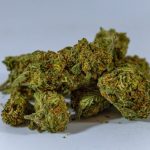Prague‚ the capital city of the Czech Republic‚ has a rich history and a vibrant cultural scene. However‚ in recent years‚ the city has also gained notoriety for being a hub for high-quality cocaine sales. This article will explore the factors that have contributed to Prague’s emergence as a center for cocaine trade.
Geographical Location
Prague’s strategic location in the heart of Europe makes it an ideal hub for drug trafficking. The city is situated at the crossroads of major trade routes‚ connecting Western and Eastern Europe. This geographical advantage allows cocaine to be easily transported from South America and other parts of the world to Prague‚ where it can be distributed to other European cities.
Organized Crime Groups
Organized crime groups‚ such as the Czech and Slovak mafia‚ have played a significant role in establishing Prague as a cocaine hub. These groups have established connections with international cocaine suppliers and have developed sophisticated networks for distributing the drug throughout Europe. Their involvement has contributed to the high quality and availability of cocaine in Prague.
Corruption and Weak Law Enforcement
Corruption and weak law enforcement in the Czech Republic have also facilitated the growth of the cocaine trade in Prague. In some cases‚ corrupt officials and law enforcement officers have been bribed or compromised‚ allowing cocaine traffickers to operate with relative impunity. This lack of effective law enforcement has created an environment conducive to the proliferation of cocaine sales.
Economic Factors
Economic factors‚ such as the city’s growing tourism industry and its status as a financial center‚ have also contributed to the demand for high-quality cocaine in Prague. The city’s affluent population and visitors seeking luxury experiences have created a lucrative market for cocaine traffickers.
Law Enforcement Efforts
The Czech authorities have been working to combat the cocaine trade in Prague‚ with a focus on disrupting the supply chains and arresting key figures involved in the trade. In recent years‚ there have been several high-profile arrests and seizures of large quantities of cocaine. For example‚ in 2020‚ the Czech police seized over 100 kilograms of cocaine in a single operation‚ with an estimated street value of over $10 million.
International Cooperation
International cooperation has also been crucial in the fight against the cocaine trade in Prague. The Czech authorities have been working closely with their counterparts in other European countries‚ as well as with international organizations such as Europol and Interpol‚ to share intelligence and best practices in combating the trade. This cooperation has led to the disruption of several major cocaine trafficking networks and the arrest of key figures involved in the trade.
Impact on Society
The cocaine trade has had a significant impact on society in Prague‚ with many residents and visitors being affected by the trade. The city’s nightlife and entertainment scenes have been particularly impacted‚ with many bars and clubs being used as fronts for cocaine sales. Additionally‚ the trade has contributed to an increase in crime and violence‚ with many reports of robberies‚ assaults‚ and other crimes being linked to the cocaine trade.
Prevention and Education
Prevention and education are key to reducing the demand for cocaine in Prague and mitigating the harm caused by the trade. The Czech authorities have been working to educate the public about the risks associated with cocaine use‚ and to provide support and treatment to those affected by addiction. Additionally‚ many organizations and community groups are working to provide alternative activities and support to young people and other vulnerable groups‚ in an effort to reduce the appeal of cocaine and other illicit substances.
Statistics
- In 2020‚ the Czech police reported a 25% increase in cocaine seizures compared to the previous year.
- According to Europol‚ the Czech Republic is one of the top five countries in the EU for cocaine seizures.
- A study by the Czech National Institute of Public Health found that over 1% of the population in Prague uses cocaine at least once a month.
To address the issue of cocaine sales in Prague‚ the following recommendations are made:
- Increase funding for law enforcement and anti-drug initiatives.
- Improve international cooperation and intelligence sharing.
- Provide education and support to vulnerable groups.
- Encourage community-led initiatives to reduce demand and provide alternative activities.
Consequences of Cocaine Trade
The cocaine trade has severe consequences for the city of Prague and its inhabitants. The rise of cocaine sales has led to an increase in crime and violence‚ with many reports of robberies‚ assaults‚ and other crimes being linked to the trade. Additionally‚ the trade has contributed to an increase in addiction and health problems‚ with many users suffering from serious health issues‚ including overdose and death;
Impact on Local Communities
The cocaine trade has also had a significant impact on local communities in Prague. Many residents have reported feeling intimidated and fearful of the dealers and users‚ and some have even been forced to leave their homes due to the presence of cocaine dealers in their neighborhoods. Furthermore‚ the trade has led to an increase in public nuisance‚ with many areas of the city being plagued by litter‚ noise‚ and other forms of anti-social behavior.
Efforts to Combat the Trade
Despite the challenges posed by the cocaine trade‚ the authorities in Prague are working hard to combat the problem. The police have increased their presence in areas known to be affected by the trade‚ and have implemented a range of initiatives to disrupt the supply chains and arrest key figures involved in the trade. Additionally‚ the city council has launched a number of community-led initiatives aimed at reducing demand and providing support to those affected by addiction.
International Cooperation
The fight against the cocaine trade in Prague is not just a local issue‚ but a global problem that requires international cooperation. The Czech authorities are working closely with their counterparts in other European countries‚ as well as with international organizations such as Europol and Interpol‚ to share intelligence and best practices in combating the trade. This cooperation has led to the disruption of several major cocaine trafficking networks and the arrest of key figures involved in the trade.
To further address the issue of cocaine sales in Prague‚ the following recommendations are made:
- Increase funding for law enforcement and anti-drug initiatives
- Improve international cooperation and intelligence sharing
- Provide education and support to vulnerable groups
- Encourage community-led initiatives to reduce demand and provide alternative activities
The fight against the cocaine trade in Prague is an ongoing challenge that requires the efforts of everyone involved. By working together‚ we can create a safer and healthier environment for all‚ and reduce the harm caused by this destructive trade.





